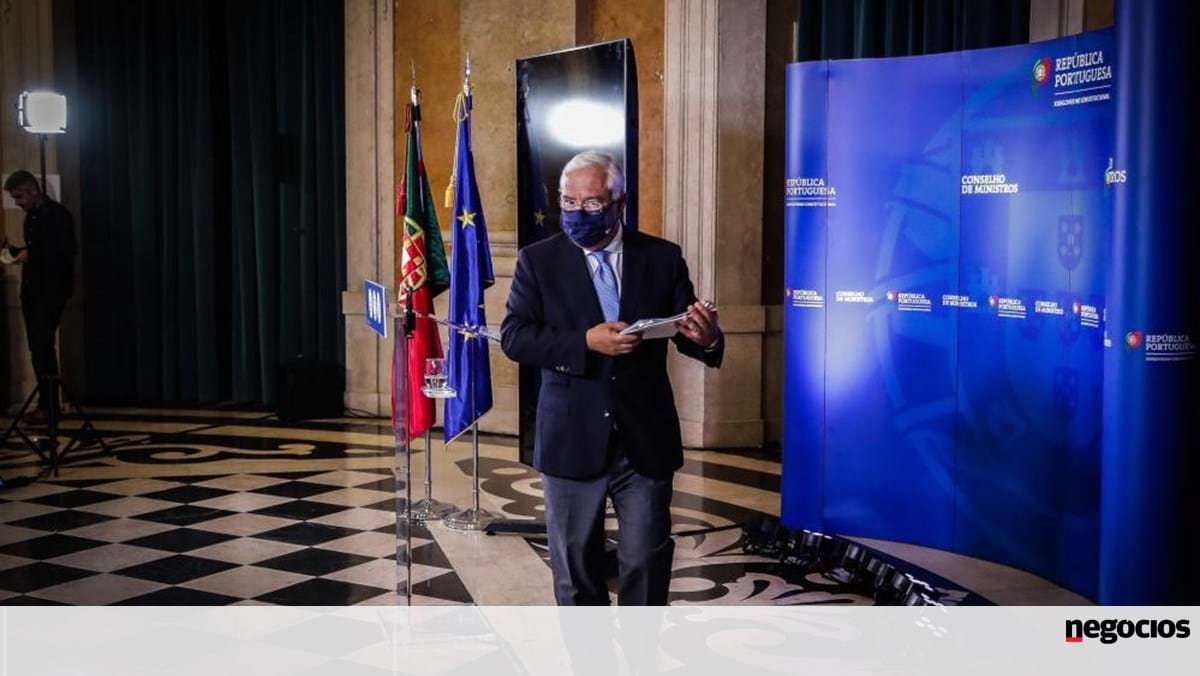
[ad_1]
“Maximum efficiency, minimum disturbance”, continues to be the motto of the Government for the adoption of measures to control the pandemic. This Saturday, the Prime Minister, António Costa, announced the new batch of restrictions that will be in force from next Tuesday, November 24 to December 8, after the renewal of the state of emergency.
Based on the evolution of the pandemic in recent weeks, the Government decided to bet on more severe measures for companies. And since the next fortnight brings two holidays against the weekend, there will also be specific rules for those periods.
What changes for companies:
Telecommuting has been mandatory in at-risk counties since the state of emergency was decreed, but there appears to be “a lot of non-compliance” by companies. In this sense, the Council of Ministers decided to intensify inspection activities for compulsory teleworking. Starting next week, the Labor Conditions Authority will be at the fore, above all, of companies in the service sector. The measure covers the 213 municipalities that currently have more than 240 cases of contagion per 100,000 inhabitants. “There are many more people on the move than there should be,” said António Costa. In addition to strengthening the inspection, the Council of Ministers decided to impose the use of mandatory masks in the workplace. Exceptions are provided for isolated jobs or “cases in which there is physical separation between jobs.”
The prime minister also left an appeal to employers: the two Mondays preceding the December holidays, on November 30 and December 7, to grant tolerance points to employees, to limit travel. The Government will do it for the public function, and will also suspend all teaching activities on those days. Throughout the national territory, circulation between municipalities will be prohibited between 11 p.m. on November 27 and December 5, and again at the same times between December 4 and 9.
What changes for commerce and restaurants:
Commercial establishments and restaurants will continue to be subject to restrictive hours, but this time there will be differences, on weekends and holidays, depending on the degree of risk in the municipality where they are located. Therefore, in the 213 high-risk counties, the obligation to close the business at 10 pm remains. For catering, cultural and sports activities, the “curfew” begins at 10:30 pm, as in the last 15 days.
The schedule will be more restrictive on the weekends of November 28 and 29 and December 5 and 6, as well as the holidays of December 1 and 8. But not in the whole country. In the 127 municipalities considered “very high” or “extremely high” risk, which include most of the municipalities in the metropolitan areas of Lisbon and Porto, shops and restaurants must close at 1:00 p.m.
On the eve of the holidays, on November 30 and December 7, the Government decreed the closure of all activities after 3 in the afternoon, in these 127 municipalities that give rise to the greatest concerns.
“On Mondays we decide that the closure of establishments and restaurants is only at 3 pm because on those days, despite the tolerance of time in public service and cancellation of school activities, the truth is that we cannot impose the suspension of work in the private sector. Many people will have to work ”, justified the Prime Minister.
During the week, and only in the 213 municipalities with more than 240 cases per 100,000 inhabitants, the prohibition of circulating on public roads between 11 pm and 5 am continues. These measures will be reviewed in early December, as well as the list of risky counties.
[ad_2]